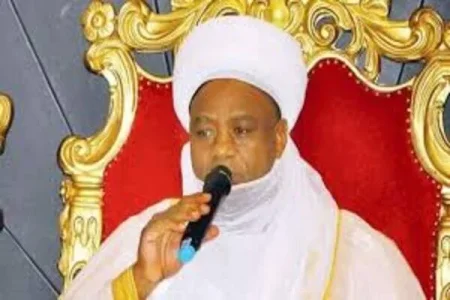
MURIC warns against Sokoto Governor Ahmed Aliyu's alleged plan to depose Sultan Muhammad Sa’ad Abubakar III. The Muslim community urges legal amendments to protect the Sultan's position, highlighting potential unrest if the governor proceeds. Northern elites are called to intervene to prevent further controversy.
The Muslim Rights Concern (MURIC) has raised concerns over an alleged plan by Governor Ahmed Aliyu of Sokoto State to depose the Sultan of Sokoto, Alhaji Muhammad Sa’ad Abubakar III. This comes amid controversy surrounding the deposition of monarchs in Kano State. Governor Aliyu recently deposed 15 traditional rulers for various offenses.
In a statement issued on Monday, MURIC's Executive Director, Prof. Isiaq Akintola, emphasized that Nigerian Muslims would not tolerate any attempt to dethrone the Sultan. Akintola warned that the governor might use flimsy excuses to justify such an action, similar to those used to remove the 15 traditional rulers.
Akintola highlighted the significance of the Sultan's position, which is both traditional and religious, extending beyond Sokoto to the entire Nigerian Muslim community. He cautioned that any move against the Sultan would provoke a strong response from Nigerian Muslims.
"A military governor, Col. Yakubu Muazu, deposed Sultan Ibrahim Dasuki on April 20, 1996. Nigerian Muslims will not accept another such incident," Akintola stated. He suggested that Nigerian Muslims might be forced to reconsider their acceptance of traditional rulers if Sokoto governors continue to undermine the Sultan's authority.
MURIC called on the Sokoto State House of Assembly to amend the state's chieftaincy laws to exempt the Sultan from being deposed. Akintola urged Northern elites and Islamic scholars to intervene before it is too late.
The Sokoto State Government has yet to respond to MURIC’s allegations but has indicated plans to amend section 76 of the local government and chieftaincy law to align with current practices. The proposed amendment would ensure the Sultanate Council retains the power to recommend candidates for traditional roles, while the final appointment authority would rest with the governor.




